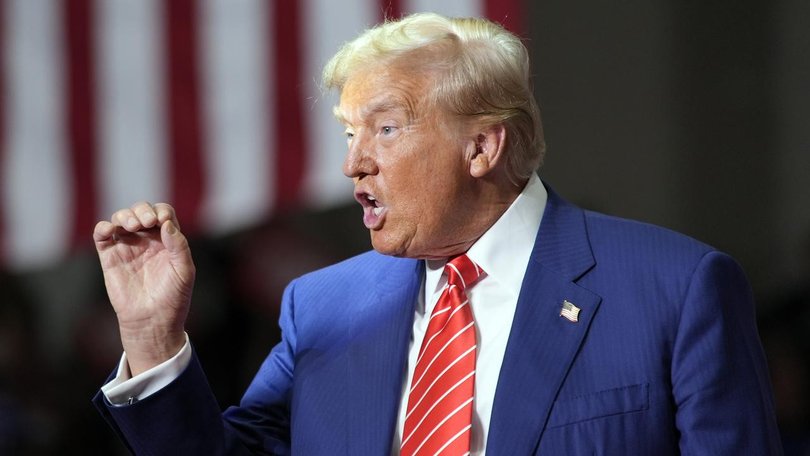Donald Trump hush money case: Former president's request to move case to a federal court rejected

A US federal judge has rejected Donald Trump’s request to intervene in his New York hush money criminal case, thwarting the former president’s latest bid to overturn his felony conviction and delay his sentencing.
US District Judge Alvin Hellerstein ruled on Tuesday that Trump had not satisfied the burden of proof required for a federal court to take control of the case from the state court where it was tried.
Judge Hellerstein’s ruling came hours after Manhattan prosecutors raised objections to Trump‘s effort to delay post-trial decisions in the case while he sought to have the federal court step in.
Sign up to The Nightly's newsletters.
Get the first look at the digital newspaper, curated daily stories and breaking headlines delivered to your inbox.
By continuing you agree to our Terms and Privacy Policy.The Manhattan district attorney’s office argued in a letter to the judge presiding over the case in state court that he had no legal obligation to hold off on post-trial decisions and wait for Judge Hellerstein to rule.
Prosecutors urged the trial judge, Juan M Merchan, not to delay his rulings on two key defence requests: Trump’s call to delay sentencing until after the November election, and his bid to overturn the verdict and dismiss the case in the wake of the US Supreme Court’s presidential immunity ruling.
Judge Merchan has said he will rule on September 16 on Trump’s motion to overturn the verdict. His decision on delaying sentencing has been expected in the coming days.
Trump was convicted in May of 34 felony counts of falsifying business records to conceal a $US130,000 ($A193,683) hush money payment to porn actor Stormy Daniels, whose affair allegations threatened to disrupt his 2016 presidential run. Trump has denied her claim and said he did nothing wrong.
Falsifying business records is punishable by up to four years behind bars. Other potential sentences include probation or a fine.
In a letter on Tuesday, Assistant District Attorney Matthew Colangelo reiterated that prosecutors have not staked a position on whether to delay sentencing, deferring to Judge Merchan on an “appropriate post-trial schedule”.
Trump’s lawyers have argued that sentencing Trump as scheduled, just two days after Judge Merchan’s expected immunity decision, would not give him enough time to weigh next steps — including a possible appeal — if Judge Merchan rules to uphold the verdict.
They also argued that sentencing Trump on September 18, about seven weeks before Election Day would be election interference, raising the spectre that Trump could be sent to jail as early voting is getting underway.
Mr Colangelo said that prosecutors were open to a schedule that allows “adequate time” to adjudicate Trump’s motion to set aside the verdict while also sentencing him “without unreasonable delay”.
In a letter to Judge Merchan last week, Trump’s lawyers said delaying the proceedings is the “only appropriate course” as they seek to have the federal court rectify a verdict they say was tainted by violations of the Republican presidential nominee’s constitutional rights and the Supreme Court’s ruling that gives ex-presidents broad protections from prosecution.
If the case is moved to federal court, Trump’s lawyers said they will then seek to have the verdict overturned and the case dismissed on immunity grounds.
The Supreme Court’s July 1 ruling reins in prosecutions of ex-presidents for official acts and restricts prosecutors from pointing to official acts as evidence that a president’s unofficial actions were illegal.
Trump’s lawyers have argued that prosecutors rushed to trial instead of waiting for the Supreme Court’s presidential immunity decision, and that prosecutors erred by showing jurors evidence that should not have been allowed under the ruling, such as former White House staffers describing how Trump reacted to news coverage of the hush money deal and tweets he sent while president in 2018.
Trump’s lawyers had previously invoked presidential immunity in a failed bid last year to get the hush money case moved from state court to federal court.
